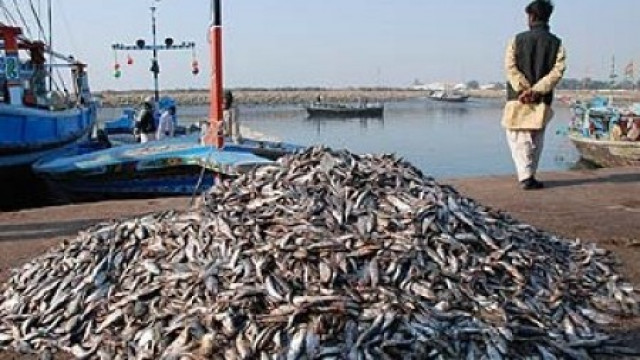Islamabad:
Experts have emphasized the urgent need to recognize and exploit the unused potential for marine and inner fishing and aquaculture to promote food security, reduce poverty and drive sustainable economic growth.
They spoke at a workshop on Wednesday, organized by the Ministry of Maritime Affairs with technical support from the Food and Agriculture Organization (FAO) and focused on shaping National Fisheries and Aquaculture Policy 2025-2035.
With the event, the event noted the federal minister of maritime affairs Muhammad Junaid Anwar Chaudhry that despite Pakistan’s rich marine and inner water resources, the fishing and aquaculture sector has long been underdeveloped and under-utilized. He pointed out that the sector is currently contributing less than 0.5% to the national gross domestic product (GDP) and capturing limited value from both domestic and export markets. The Minister emphasized that one of the most important priorities in the new policy is to promote federal-province harmonization, adding that the Ministry of Maritime Affairs will continue to lead to critical national issues, including fulfilling international obligations and improving seafood exports.
The policy also focuses on cross -cutting priorities such as climate red, environmental protection, childhood security, gender information, labor rights and the adoption of modern technologies.
The Minister described the policy as a fundamental and evolving framework whose success depends on sustained commitment, effective coordination and active commitment from all stakeholders. He said the policy represents an important milestone for not only the ministry, but for all institutions, societies and stakeholders that are obliged to the future of Pakistan’s blue economy.
Maritime Affairs Secretary Syed Zaffar Ali Shah declared that despite Pakistan’s long coastline, the fishing sector has not yet achieved its potential. “It is still an important source of livelihood, but is facing serious problems such as overfishing and poor regulation.” He noted that the newly introduced national policy aims to solve these challenges through coordinated planning. With better control and value added, the sector can generate up to $ 10 billion.
FAO representative Florence role emphasized the need for strong coordination between provincial and federal governments and across sectors. She emphasized that inclusive seminars were conducted nationwide to help shape the policy. The Ministry of National Food Security’s Animal Commissioner Dr. Syed Murtaza Hassan Andrabi emphasized that the final policy must be both ambitious and feasible. He emphasized the importance of involvement of stakeholders, especially as fishing is often neglected and very climate -cooling. The policy, he added, must reflect the different ecological and cultural properties of each province.
FAOS Senior Political Specialist Dr. Kanwar Muhammad Javed Iqbal explained the main functions of Politics, including tax incentives, ecosystem preservation, women’s empowerment, entrepreneurship and pollution control.



